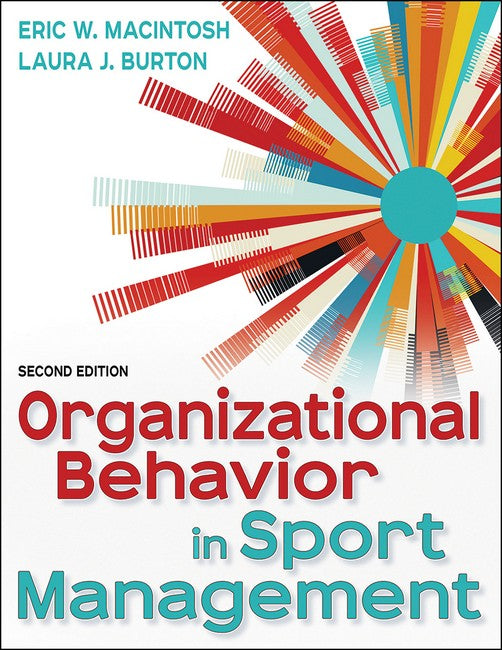Organizational Behavior in Sport Management 2/e
Organizational Behavior in Sport Management 2/e
SKU:9781718215689
Share
Organizational Behavior in Sport Management fills a gap in sport management literature by exploring the key organizational behavior topics in sport organization settings. The text covers issues such as diversity, ethics, values, behavior, leadership, and much more. Book Features Organizational Behavior in Sport Management offers the following features: - Learning objectives and discussion questions for each chapter that help students conceptualize, retain, and understand the content - Case studies with discussion questions to help students apply the concepts from each chapter - In the Boardroom sidebars that use real-life examples from organizations within the field to highlight key topics The In the Boardroom sidebars reflect best practices for various levels of numerous sport organizations, affording readers a great range of applications in the sport management world. Instructor Guide In addition, the text has an online instructor guide that includes chapter objectives, discussion questions from the text (and their answers), discussion questions for case studies (and their answers), suggestions for integrating the case studies into lectures, links to recommended websites, assignments, class projects, essay ideas, and lists of suggested readings. Focus of Book Organizational Behavior in Sport Management presents classical research in organizational behavior as well as up-to-date knowledge from the field of sport management. The authors offer information on individual, intrapersonal, interpersonal, and organizational processes that are fundamental to working within a sport organization, placing equal emphasis on what managers of sport organizations need to understand about human behavior and what each person brings to the work situation in terms of his or her own attitudes, thoughts, perceptions, and skills. The authors emphasize empowering employees and understanding their needs and desires regarding work, as opposed to managing employees in one particular way. With this in mind, the authors discuss the roles of sport organization administrators and executives, volunteers, employees, and players and coaches of sport teams, exploring how they behave independently as well as how they interact with each other. An Understanding of Organizational Behavior Organizational Behavior in Sport Management offers a foundational and contemporary look at the inner workings of sport organizations, providing numerous real-life examples from throughout the country and grounding students in the key behavioral and managerial issues that leaders, managers, and employees in sport organizations face today. As such, this text answers the key questions of why we do what we do at work, why others behave as they do, and how our interpretation of events and behaviors is subject to our own biases. In the process, students will gain an understanding of the most important organizational behavior topics and get a glimpse of how they could successfully function in a sport organization.
About the Author
About the Author
Eric MacIntosh, PhD, is a professor of sport management at the University of Ottawa in Canada. He researches and teaches on various organizational behavior topics, covering concepts such as culture, leadership, satisfaction, and socialization. His principal research interests are the functioning of organizations and how a favorable culture can transmit positively internally and outwardly into the marketplace. He is well published in leading peer-reviewed sport management journals and is a member of several prominent editorial boards. He is also the coeditor of the book International Sport Management. Laura J. Burton, PhD, is a professor of sport management and head of the educational leadership department within the Neag School of Education at the University of Connecticut. Her research interests include understanding leadership in organizations (particularly sport organizations) and exploring development, access, and success in leadership. Her work focuses on issues of gender in leadership contexts, specifically how stereotypes and discrimination affect women in sport leadership. She has served as the editor of the Journal of Intercollegiate Sport and serves on the editorial board of the Journal of Sport Management. She has been published in the Journal of Sport Management, Sport Management Review, and Sex Roles. She is coeditor of Women in Sport Leadership: Research and Practice for Change, published in 2017, and the textbook Sport Leadership in the 21st Century, published in 2014.
Couldn't load pickup availability


